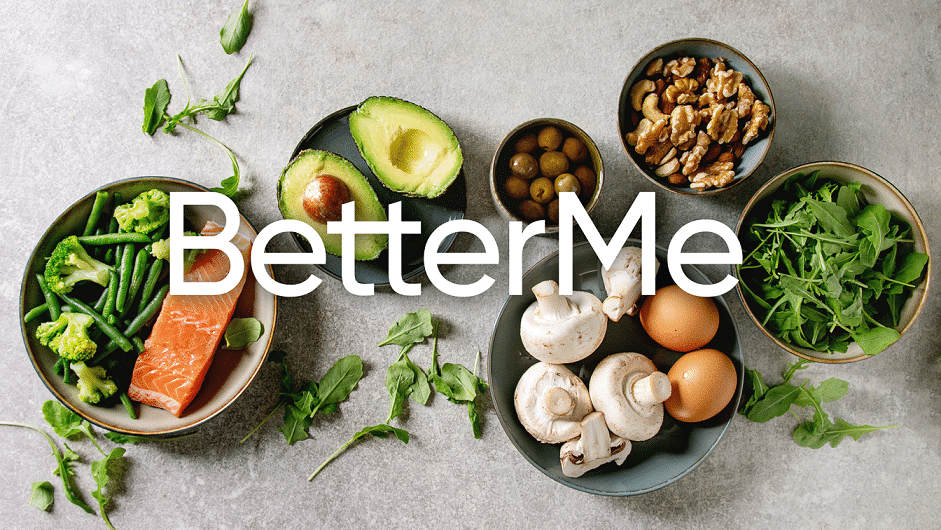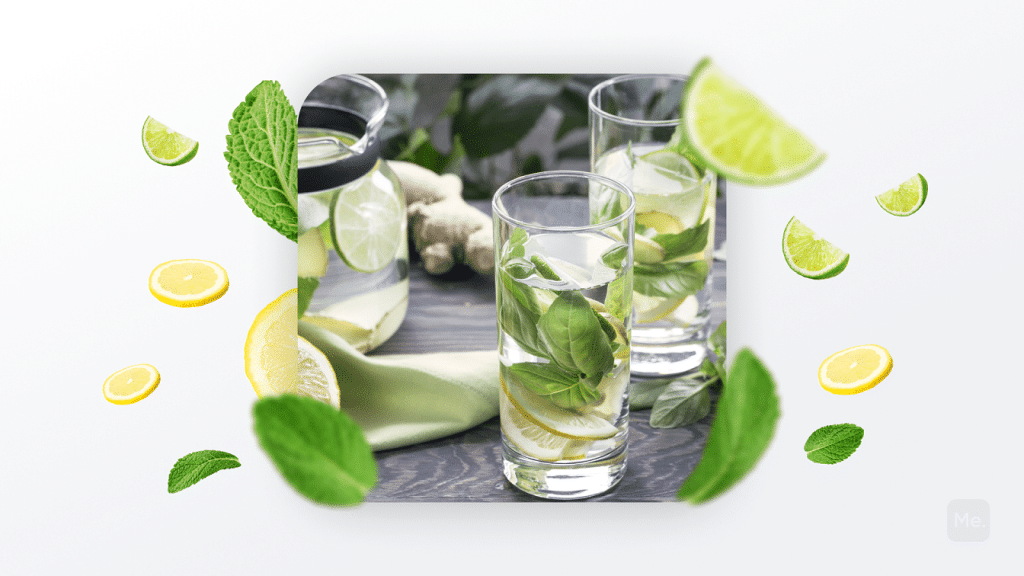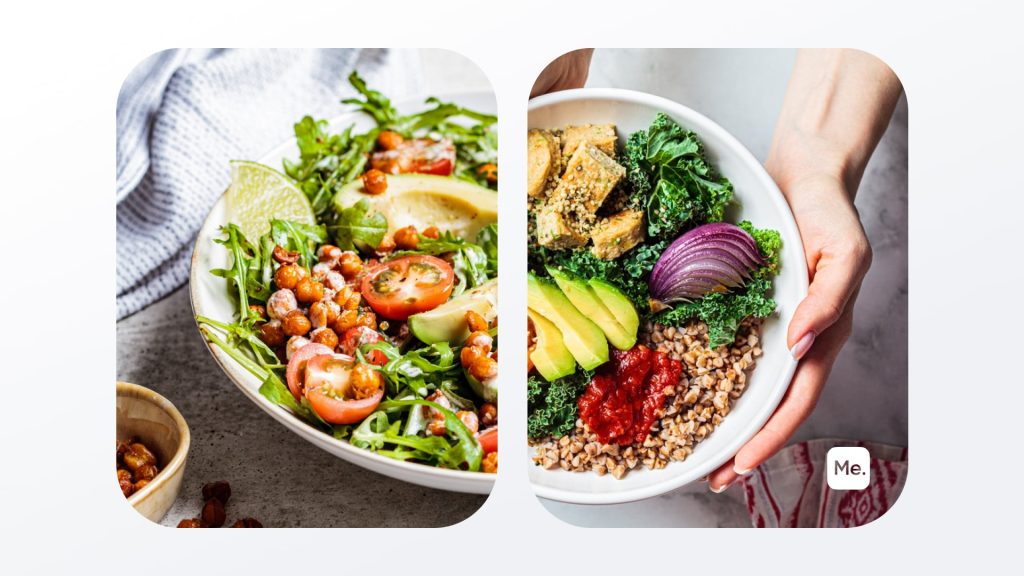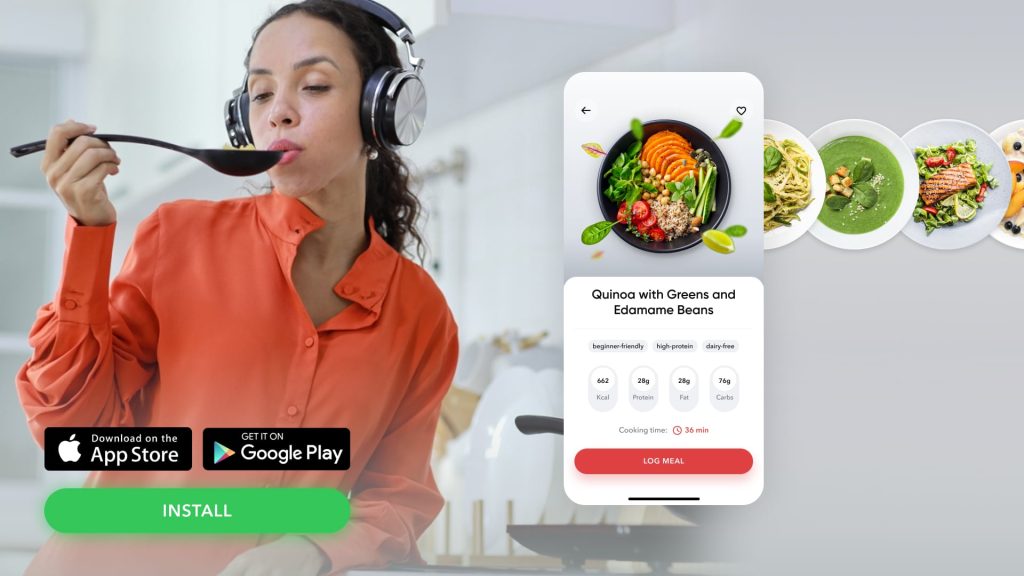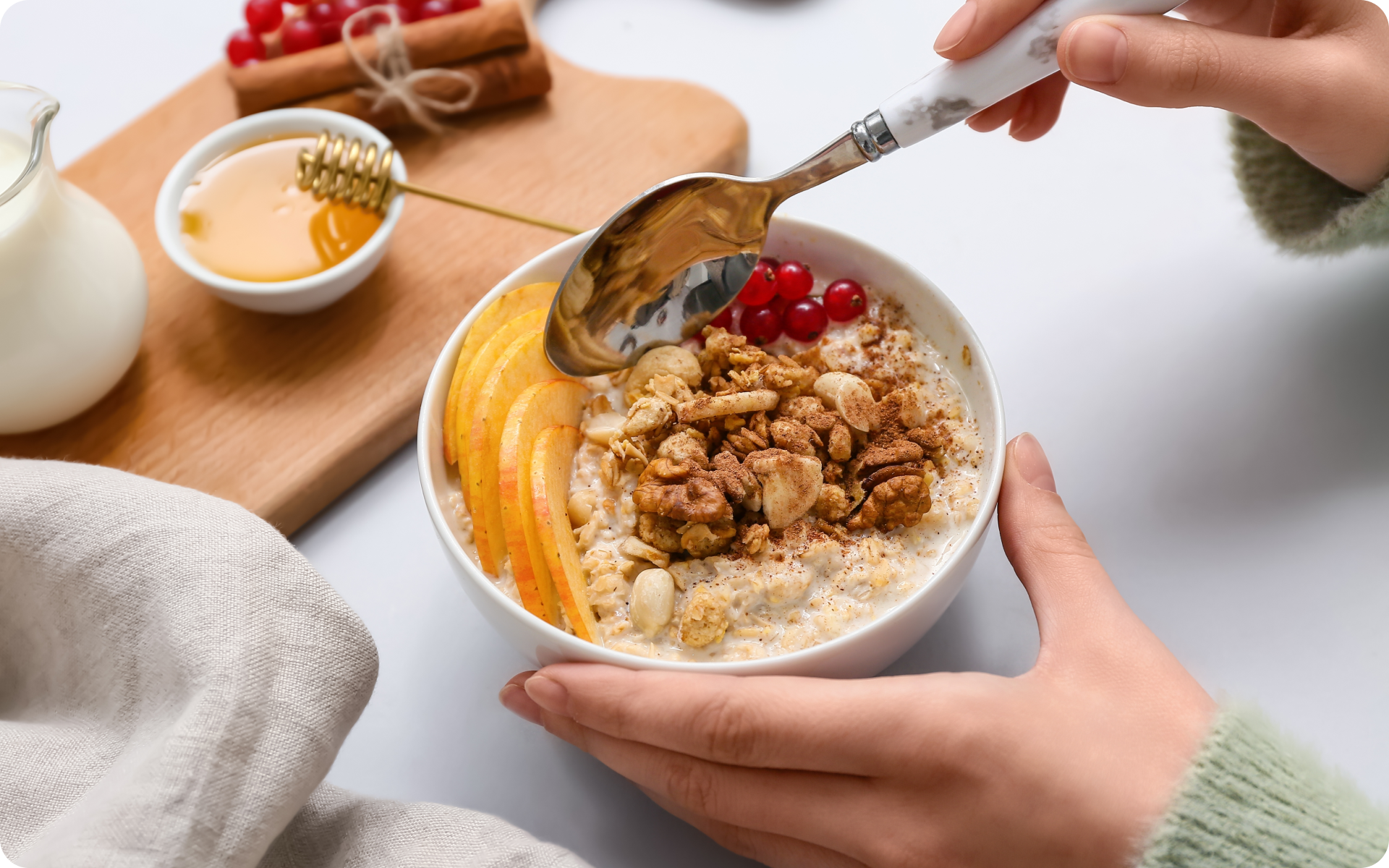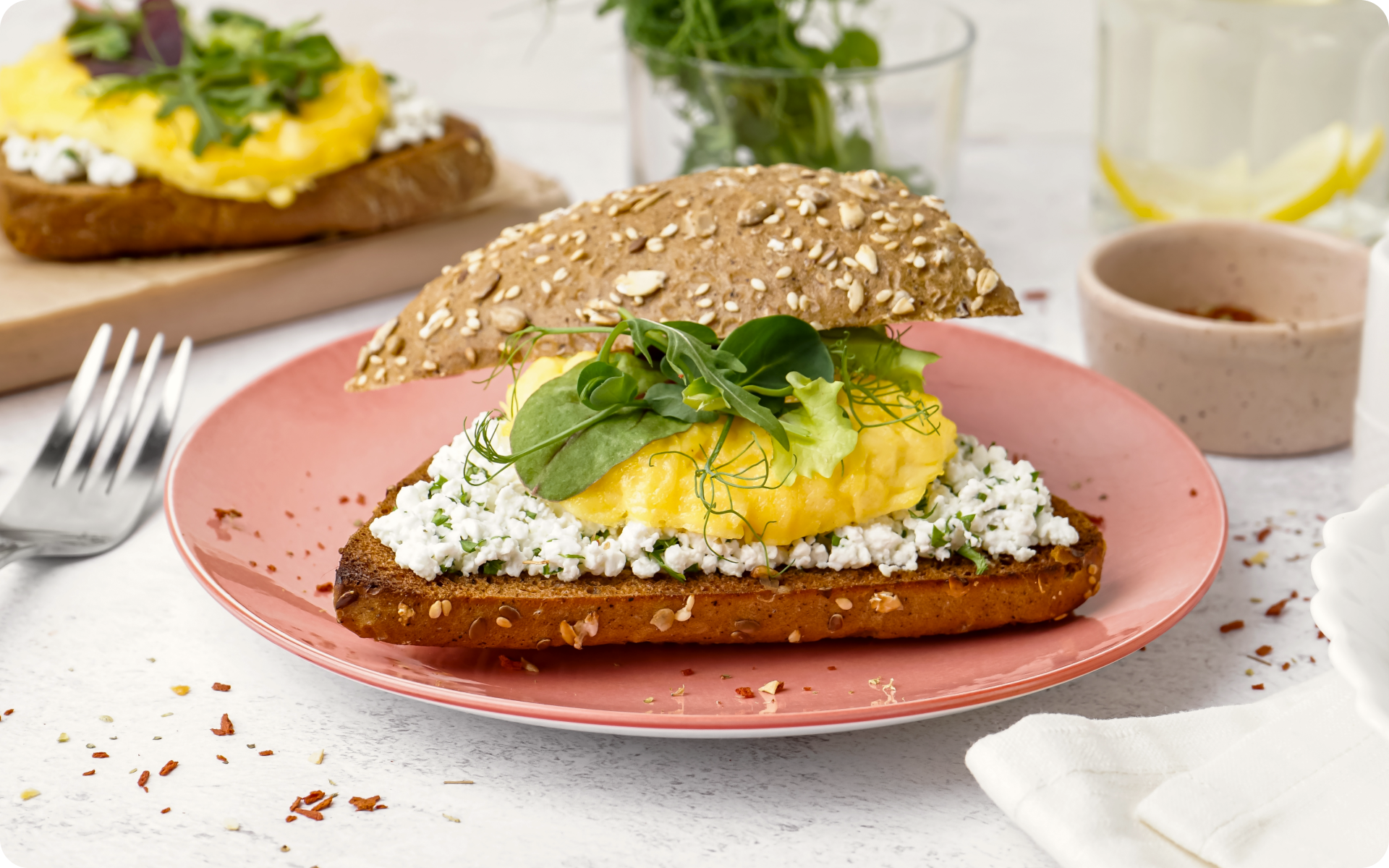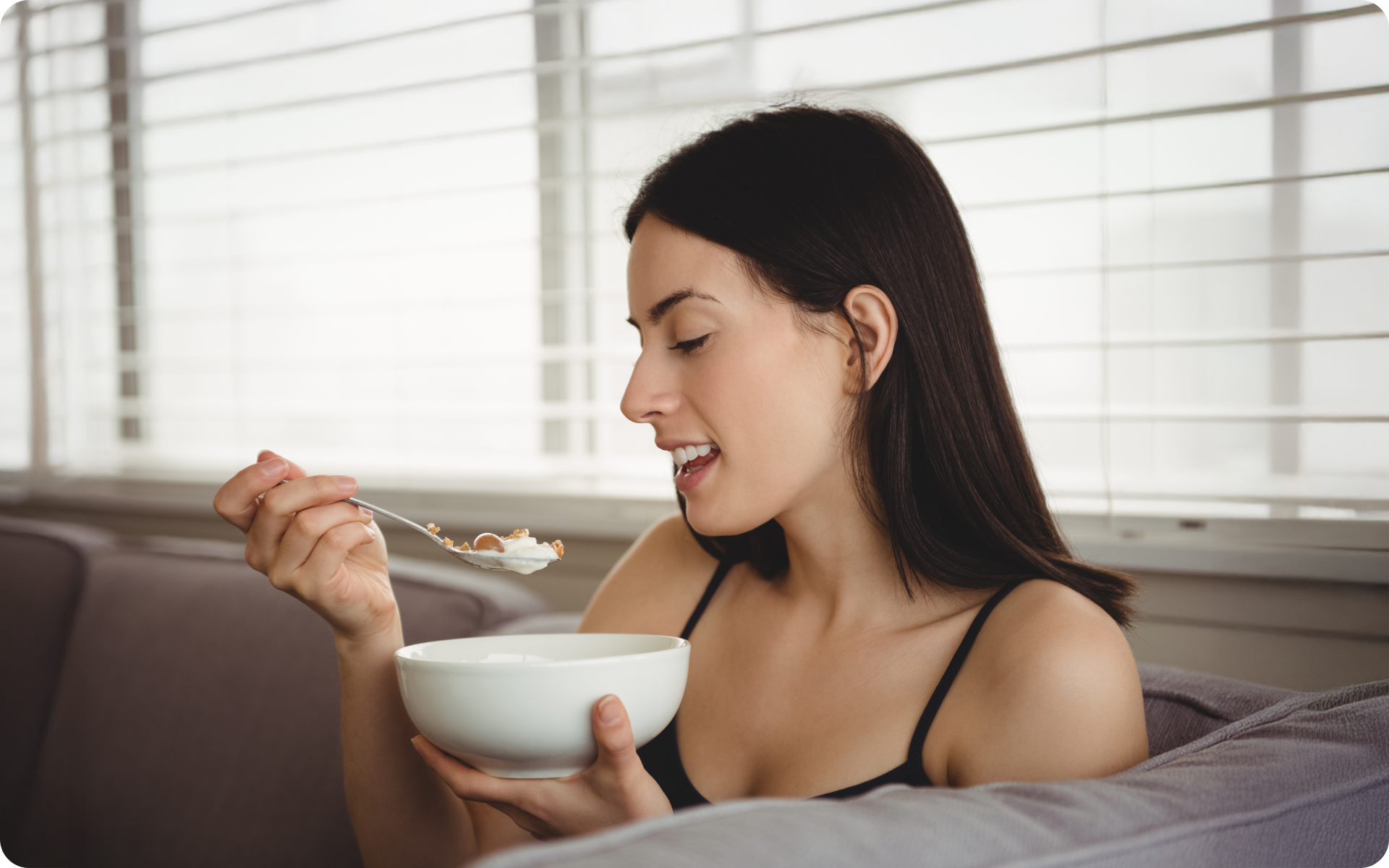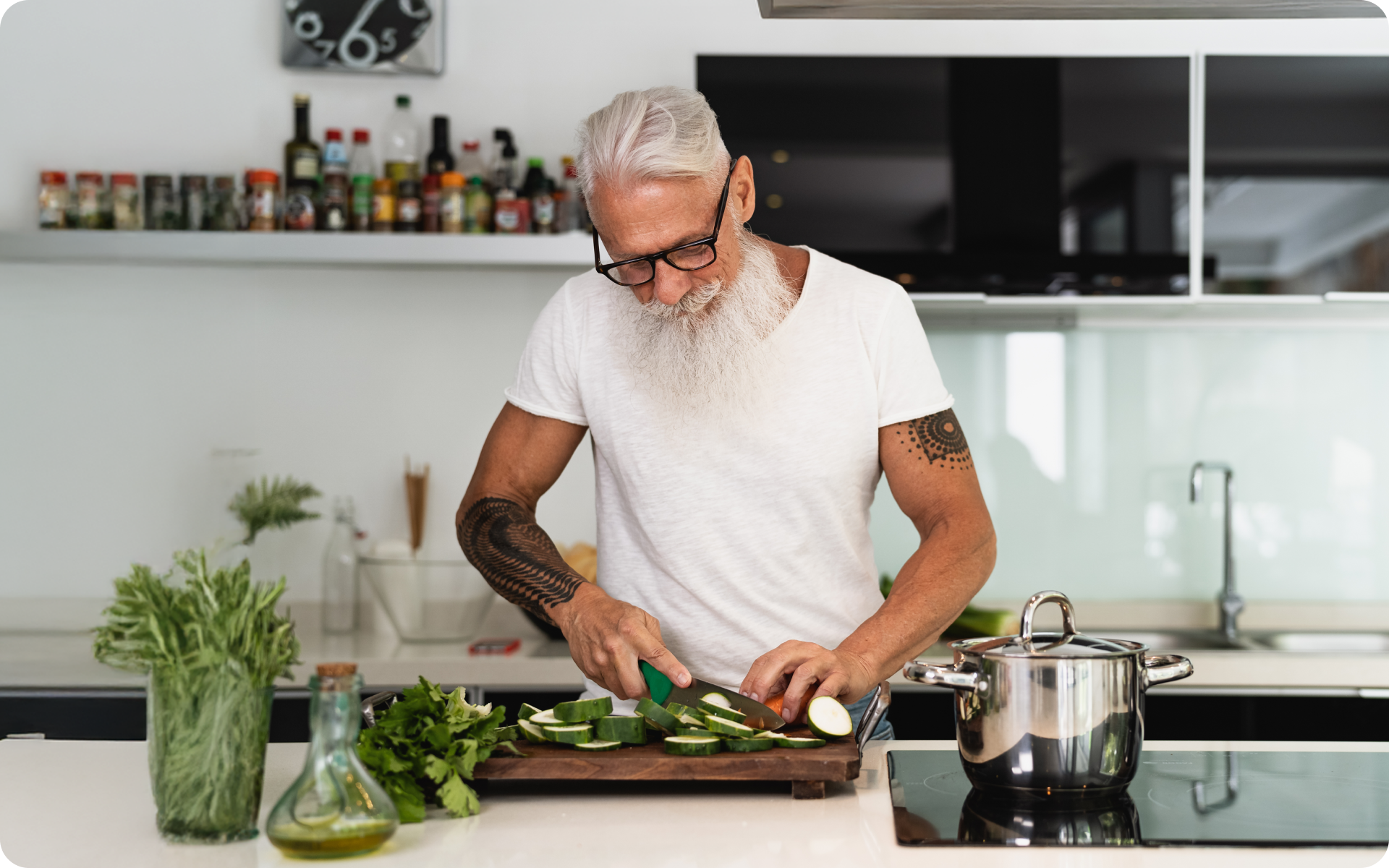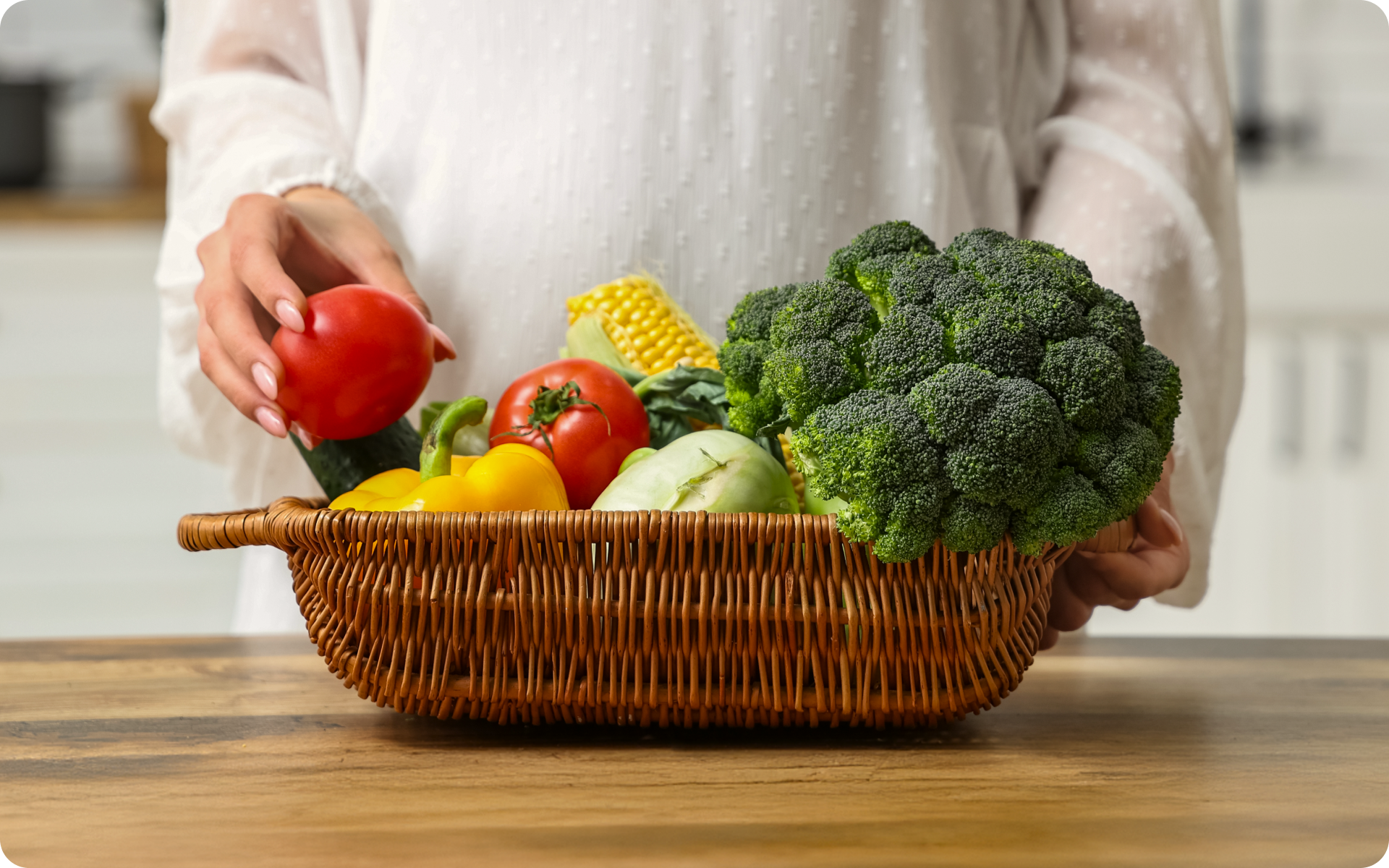Unpopular opinion – most weight loss diets fail because they place too much emphasis on calorie counting and not enough on the quality of the meals being consumed. This ultimate 1800-calorie meal plan for weight loss success takes a different approach by focusing on nutritious, low-calorie meal plans that promote long-term success. In this article, we’ll explore the importance of such meal plans, discuss effective strategies to achieve your goals, and provide valuable insights for making informed food choices. By shifting your attention from merely counting calories to prioritizing nutrient-dense meals, you can stay within your diet limits while enjoying satisfying dishes that support your weight loss journey. So here’s what you need to know to get in shape, without ever feeling deprived.
Get your personalized
meal plan!
Can You Lose Weight Eating 1800 Calories A Day?
Yes, it is possible to lose weight by consuming 1800 calories a day. This is depending on factors such as age, gender, activity level, and current weight. However, it’s crucial to understand how calories work and determine the appropriate caloric intake for your specific needs.
How Do Calories Work?
Calories are units of energy that our bodies use to fuel various functions, such as physical activities, maintaining body temperature, and supporting vital processes. We obtain calories from the food we eat, mainly through carbohydrates, fats, and proteins (2).
When we consume more calories than our body needs, the excess is stored as fat, leading to weight gain. Conversely, when we consume fewer calories than our body requires, the stored fat is then used for energy, resulting in weight loss (2).
Read More: 1500 Calorie Meal Plan High Protein
Determining Caloric Intake For Weight Loss
To determine the ideal caloric intake for weight loss, follow these steps:
- Calculate your Basal Metabolic Rate (BMR). BMR is the number of calories your body needs to maintain its basic functions at rest. Several online BMR calculators can help you determine this value.
- Factor in your activity level. Multiply your BMR by an activity factor based on your daily physical activity (sedentary, light, moderate, or heavy).
- Create a calorie deficit. Subtract 500-750 calories from your total daily caloric needs to achieve a healthy weight loss rate of 1-2 pounds per week.
Is There Such A Thing As Too Few Calories?
Yes, consuming too few calories can be harmful to your health. When caloric intake is too low, your body may not receive enough nutrients to support its vital functions, leading to malnutrition, fatigue, and weakened immunity (19) (20).
Additionally, cutting calories drastically can slow down your metabolism, making it harder to lose weight in the long run (13). It’s essential to find a balance between maintaining a calorie deficit and providing your body with the nutrients it needs for optimal health.
Is It Normal To Consume 1800 Calories A Day?
Yes, it is normal to eat 1800 calories a day for many individuals, but the ideal caloric intake varies depending on factors such as age, gender, weight, height, and activity level.
For some people, 1800 calories a day may be sufficient to maintain their current weight or even result in weight loss. Whereas, for others, it might be too low or too high.
For example, a sedentary woman in her 30s with an average height and weight may require approximately 1800 calories to maintain her current weight, while an active man in his 20s with a higher muscle mass may require more than 2500 calories to maintain his weight.
You’ll need to determine your specific caloric needs based on your unique circumstances and adjust your calorie intake accordingly.
You can use online calculators or consult with a nutritionist or dietitian to figure out the appropriate number of calories for your goals and lifestyle.
Dropping pounds by the dozens without putting yourself through the wringer is everyone’s weight loss pipe dream. But what if we told you that the BetterMe app can make that happen? Keep yourself in prime shape with our fat-blasting workouts, delicious budget-sparing recipes, and body-transforming challenges with our app!
What Can I Eat On An 1800 Calorie Diet?
On an 1800-calorie diet, it’s essential to prioritize nutrient-dense whole foods and minimize the consumption of overly processed ones. Choosing unprocessed or minimally processed foods will provide your body with the necessary nutrients while supporting weight loss goals (11).
Here is a detailed list of foods to eat and avoid, along with reasons for each choice.
Foods To Eat
- Whole grains: Whole grains like brown rice, quinoa, barley, bulgur, and whole wheat pasta are rich in fiber, which promotes satiety and aids digestion (7). They also help regulate blood sugar levels, preventing cravings and energy crashes (8).
- Lean proteins: Protein-rich foods like chicken, turkey, fish, tofu, legumes, and low-fat dairy products are crucial for muscle repair and growth (4). They can also increase feelings of fullness, helping you consume fewer calories throughout the day (17).
- Fruits and vegetables: These nutrient powerhouses are low in calories but high in vitamins, minerals, and antioxidants (9). Aim for a variety of colorful fruits and vegetables to ensure a broad range of nutrients.
- Healthy fats: Foods like avocados, nuts, seeds, and olive oil provide essential fatty acids that support brain function, heart health, and inflammation reduction (5). They also contribute to satiety, which can help prevent overeating (6).
- Dairy and dairy alternatives: Low-fat or non-fat dairy products and dairy alternatives like almond milk or soy milk provide calcium, protein, and other essential nutrients without excessive calories.
Foods To Avoid
- Sugar-sweetened beverages: Sodas, energy drinks, and fruit juices are high in added sugars and empty calories, which can lead to weight gain and hinder weight loss efforts (10).
- Refined grains: White bread, white rice, and regular pasta are stripped of their natural nutrients and fiber during processing (14). They are easy to overeat and don’t contribute much to satiety.
- Processed snacks: Chips, cookies, and other processed snacks are often high in unhealthy fats, sugars, and sodium, which can contribute to weight gain and poor health outcomes (18).
- Fried foods: Fried foods are typically high in calories, unhealthy fats, and sodium, which can negatively impact weight loss efforts and overall health (16).
- Excess added sugars: Limit the consumption of sweets, candies, and other sugary treats as they provide empty calories without essential nutrients.
How Much Is 1800 Calories Of Food?
To give you an idea of what 1800 calories of food look like, let’s break it down into a sample meal plan for a day that includes three main meals and a snack.
Note that the calorie counts provided in the example meal plan are approximate values and can vary depending on factors like portion size, brand, and preparation method.
To obtain accurate calorie counts for the foods you consume, it’s best to refer to the nutritional information provided on food packaging. You may also choose to use online calculators or apps for convenience.
Below is a sample 3-day meal plan you can try:
Day One (1795 calories)
- Breakfast: 1 serving of creamy chocolate protein smoothie, 1 serving of open-face breakfast sandwich (511 calories)
- Lunch: 1 serving of paleo avocado chicken salad (343 calories)
- Snack: 1 serving of yogurt and strawberries (182 calories)
- Dinner: 1 serving of Korean beef bowl, 1 serving of mung bean salad (759 calories)
Read More: Primal Diet Meal Plan: A Beginner’s Guide
Day Two (1801 calories)
- Breakfast: 1 serving of protein pancakes, 2 medium-sized apples (440 calories)
- Lunch: 1 serving of honey garlic shrimp, 3 servings of simple mixed green salad (431 calories)
- Snack: 1 serving fruit and nut bowl (684 calories)
- Dinner: 1 serving of creamy asparagus and shrimp Alfredo, 2 bowls of vegetable miso soup (246 calories)
Day Three (1800 calories)
- Breakfast: 1 serving of bacon and eggs with cherry tomatoes, 8 ounces of orange, banana, and grape smoothie (466 calories)
- Lunch: 3 servings of tarragon and dijon chicken salad, 1 ounce of almonds (501 calories)
- Snack: 1 serving of provencal endive salad (246 calories)
- Dinner: 1 serving of paleo Mediterranean meatballs, 1 serving of cauliflower and tahini (587 calories)
Day Four (1800 calories)
- Breakfast: 1 serving of Broccoli with sesame egg ribbons, 1 cup of blueberries(482 calories)
- Lunch: 1 ½ Tuna and hummus sandwich, 1 serving green salad (454 calories)
- Snack: 2 almond butter and hemp seed balls (202 calories)
- Dinner: 1 serving of tomato mozzarella tuna melt, 1 ½ servings of steamed broccoli (663 calories)
Day Five (1801 calories)
- Breakfast: 1 serving of sour cream scrambled eggs, 2 strips of bacon (427 calories)
- Lunch: 1 serving of spicy tuna and cottage cheese bowl, 2 servings of broccoli slaw (458 calories)
- Snack: 3 large poached eggs (216 calories)
- Dinner: 1 serving of rosemary-crusted lamb chops with 2 servings of zesty tomato soup (700 calories)
Source: Eat This Much (1)
How To Hit 1800 Calories A Day?
To successfully hit 1800 calories a day, follow this road plan that includes practical tips and solutions for potential challenges you may face:
1. Plan Your Meals In Advance
- Create a weekly meal plan with breakfast, lunch, dinner, and snacks that add up to 1800 calories.
- Make a shopping list based on your meal plan to ensure you have all the ingredients needed.
- Prepare meals in advance or cook in bulk to save time and make it easier to stick to your plan.
2. Track Your Calories
- Use a food diary or a calorie-tracking app to log your daily food intake accurately.
- Measure portion sizes using measuring cups, spoons, or a kitchen scale for precision.
- Read food labels to determine the caloric content of packaged foods.
3. Balance Macronutrients
- Aim for a balance of carbohydrates (45-65% of total calories), proteins (10-35%), and fats (20-35%) to ensure proper nutrition.
- Adjust macronutrient ratios according to your specific needs or preferences, such as a low-carb or high-protein approach.
4. Opt For Nutrient-Dense Foods
- Prioritize whole foods rich in vitamins, minerals, and fiber, such as fruits, vegetables, whole grains, lean proteins, and healthy fats.
- Limit ultra-processed foods high in empty calories, unhealthy fats, and added sugars.
Challenges And Solutions
Challenge: Feeling Hungry or Unsatisfied
Solution: Increase fiber and protein intake, as they promote satiety (3) (12). Drink plenty of water and opt for low-calorie, high-volume foods like leafy greens, berries, and air-popped popcorn.
Want to build an attention-grabbing bubble butt, blast away fat that’s stored in all the wrong places, spring-clean your diet, turn back the clock on your skin, skyrocket your self-confidence and shatter your insecurities? Check out the BetterMe app and set this plan in motion!
Challenge: Social Events or Eating Out
Solution: Research restaurant menus beforehand and choose healthier options. You can also eat a small, healthy snack before attending social events to avoid overindulging.
Challenge: Limited Time For Meal Preparation
Solution: Meal prep in advance, cook in bulk, or use a slow cooker to save time. You can also keep healthy, ready-to-eat options on hand, such as pre-washed greens, canned beans, and frozen fruits and vegetables.
Challenge: Cravings for High-calorie Foods
Solution: Find healthier alternatives to your favorite treats, such as fruit-based desserts, air-popped popcorn, or dark chocolate. Practice mindful eating and allow yourself occasional indulgences in moderation to prevent feelings of deprivation.
Challenge: Lack of Variety in Meals
Solution: Experiment with new recipes and ingredients to keep your meals interesting. Try incorporating different fruits, vegetables, grains, and protein sources to ensure a diverse range of nutrients and flavors. You can also explore various ethnic cuisines for inspiration.
Challenge: Staying Motivated and Consistent with the Meal Plan
Solution: Set realistic short-term and long-term goals to track your progress. Consider finding a support system, such as friends, family, or online communities, to share your experiences and stay accountable.
You can also reward yourself (non-food rewards) for reaching specific milestones, which will help maintain motivation.
Challenge: Balancing an 1800 Calorie Diet with Physical Activity
Solution: Incorporate regular exercise into your routine to complement your low-calorie meal plan. Exercise not only helps burn calories but also improves overall well-being (15).
To ensure optimal energy levels, schedule workouts during times when you feel most energetic and adjust meal portions accordingly to fuel your activities. You can also work movement into your daily routine by making small changes like parking farther away or taking the stairs more often.
Challenge: Limited Access to Healthy Food Options
Solution: Plan ahead by stocking up on non-perishable, healthy food items such as canned beans, whole grains, and frozen fruits and vegetables. When fresh produce is unavailable, opt for frozen or canned versions with no added sugars or salt.
You can also consider online grocery shopping or meal delivery services that cater to your dietary needs.
Challenge: Traveling or Being Away from Home
Solution: Research healthy food options at your destination, such as local markets, restaurants, or grocery stores. Pack portable, non-perishable snacks like nuts, seeds, and whole-grain crackers to have on hand during transit.
Additionally, consider staying at accommodations with kitchen facilities, allowing you to prepare some meals yourself.
Conclusion
Following an 1800-calorie meal plan can be an effective way to manage your weight and improve overall health. By incorporating a variety of nutrient-dense foods from different food groups, you can enjoy satisfying meals while staying within your daily calorie limit.
Remember to adjust portion sizes and food choices based on your individual preferences and dietary needs for optimal results.
DISCLAIMER:
This article is intended for general informational purposes only and does not serve to address individual circumstances. It is not a substitute for professional advice or help and should not be relied on for making any kind of decision-making. Any action taken as a direct or indirect result of the information in this article is entirely at your own risk and is your sole responsibility.
BetterMe, its content staff, and its medical advisors accept no responsibility for inaccuracies, errors, misstatements, inconsistencies, or omissions and specifically disclaim any liability, loss or risk, personal, professional or otherwise, which may be incurred as a consequence, directly or indirectly, of the use and/or application of any content.
You should always seek the advice of your physician or other qualified health provider with any questions you may have regarding a medical condition or your specific situation. Never disregard professional medical advice or delay seeking it because of BetterMe content. If you suspect or think you may have a medical emergency, call your doctor.
SOURCES:
- 1800 Calorie diet and meal plan – Eat This Much (n.d., eatthismuch.com)
- Calories: Total Macronutrient Intake, Energy Expenditure, and Net Energy Stores – Diet and Health (1989, ncbi.nlm.nih.gov)
- Dietary fibre and satiety (2007, onlinelibrary.wiley.com)
- Dietary Protein and Muscle Mass: Translating Science to Application and Health Benefit (2019, mdpi.com)
- Essential fatty acids as functional components of foods- a review (2012, ncbi.nlm.nih.gov)
- Fats and Satiety – Fat Detection (2010, ncbi.nlm.nih.gov)
- Health benefits of dietary fiber (2009, academic.oup.com)
- Health Benefits of Dietary Whole Grains: An Umbrella Review of Meta-analyses (2016, sciencedirect.com)
- Health Benefits of Fruits and Vegetables (2012, sciencedirect.com)
- Intake of sugar-sweetened beverages and weight gain: a systematic review (2006, sciencedirect.com)
- Optimal Diet Strategies for Weight Loss and Weight Loss Maintenance (2021, ncbi.nlm.nih.gov)
- Protein, weight management, and satiety (2008, sciencedirect.com)
- Reducing Calorie Intake May Not Help You Lose Body Weight (2017, ncbi.nlm.nih.gov)
- Refined carbohydrates, phenotypic plasticity and the obesity epidemic (2019, sciencedirect.com)
- Role of Physical Activity for Weight Loss and Weight Maintenance (2017, ncbi.nlm.nih.gov)
- The Hidden Dangers of Fast and Processed Food (2018, ncbi.nlm.nih.gov)
- The role of protein in weight loss and maintenance (2015, sciencedirect.com)
- Ultra-Processed Foods and Health Outcomes: A Narrative Review (2020, mdpi.com)
- Undernutrition (2006, ncbi.nlm.nih.gov)
- Undernutrition, infection and immune function (2000, pubmed.ncbi.nlm.nih.gov)

